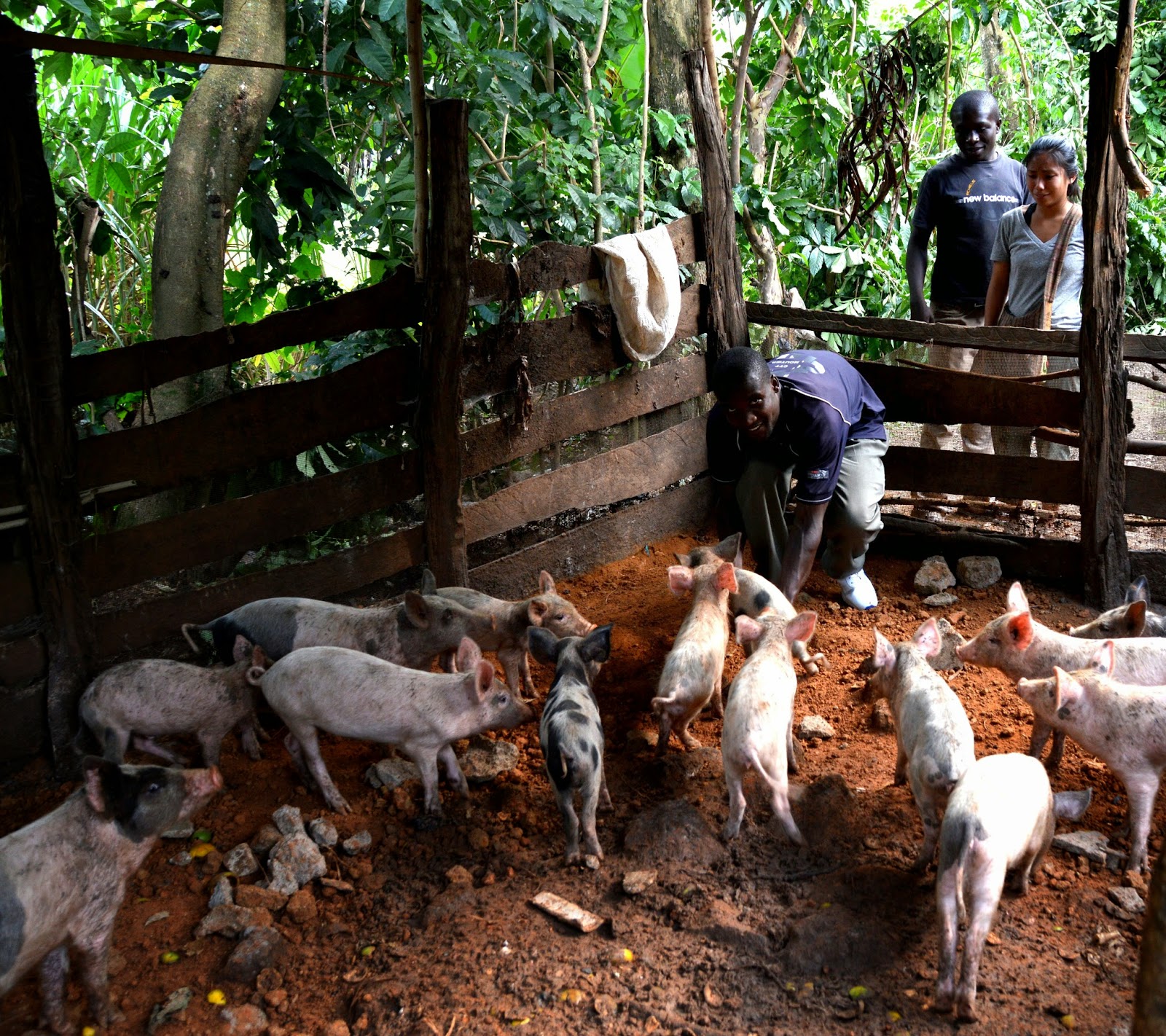
Once we could finally pull ourselves away from the newborn members of our compound, we rode "boda bodas" (motorbike taxis) to a school. This school only has about 30 students, all of which come from families with at least one HIV-positive member; 8 of them are living positively themselves. This school was started by WOPLAH (and is one of Edwin's "babies") because this community was identified as having many vulnerable children who could not afford school. They were able to secure a small, one-room, mud school house and opened the school in 2008 with Edwin teaching full-time. They now have two volunteer teachers, but Edwin still goes to the school about once a week to teach and play with the kids.
When we walked into the little room, the children greeted us with a song and spent the next 20 minutes of their morning lesson half-heartedly reciting various english words, letters and sounds but mostly focusing their attention on us. The students' ages ranged from 4-11, with the smallest children sitting in the front and the oldest in back. Soon it was breaktime and we went outside to play games and hand out stickers and lollipops! Although it was hard not to think about the level of education each child should have theoretically attained at their respective ages, I could also clearly see the importance of giving these children an opportunity for early-child development when they would otherwise be sitting at home or getting into trouble; it is amazing WOPLAH has been able to provide these children with valuable skills, socialization and a safe harbour that is no doubt better than any alternative.
After inviting Edwin to our house for a lunch of eggs and rice (scrambled eggs was the only semi-American food we could conjure up to share), we hopped on the "boda bodas" again to attend a self-help group where Edwin would be lecturing. He began by asking one of the members to do a recap of last week's lecture: a demonstration of proper female condom usage. Although we were all admitedly a bit uncomfortable watching a man literally use hand-motions to show how the condom should be inserted, it was a valuable and interesting experience to learn that people are taking these measures seriously and are willing to learn. Edwin proceeded to give a lecture about disclosure of one's HIV status. It is fascinating listening to him lecture about this, as he takes great care in elaborating on the delicate nature of disclosing one's status. He explained that it is a process; one should carefully choose who they tell first as well as the timing of the conversation and how to go about unfolding the story. He also highlighted the benefits to disclosing one's status: family members can help by picking up meds and being generally supportive, longer lifespan, eradication of self-stigma, more easily able to succesfully integrate into society etc. My favorite part about listening to Edwin's educational lectures is that he always has his audiences laughing and smiling; and the amount of passion in his voice cannot go unnoticed.
So, each of our activities today was, in some way, related to babies: there were the newly born goats that greeted us as we left for our daily activities, the children in WOPLAH's school who were babies of HIV-positive parents, and Edwin's talk which concerned birth control methods and the effects of disclosure on family members (including one's children).
- Nicole Jorgenson '14
- Nicole Jorgenson '14














